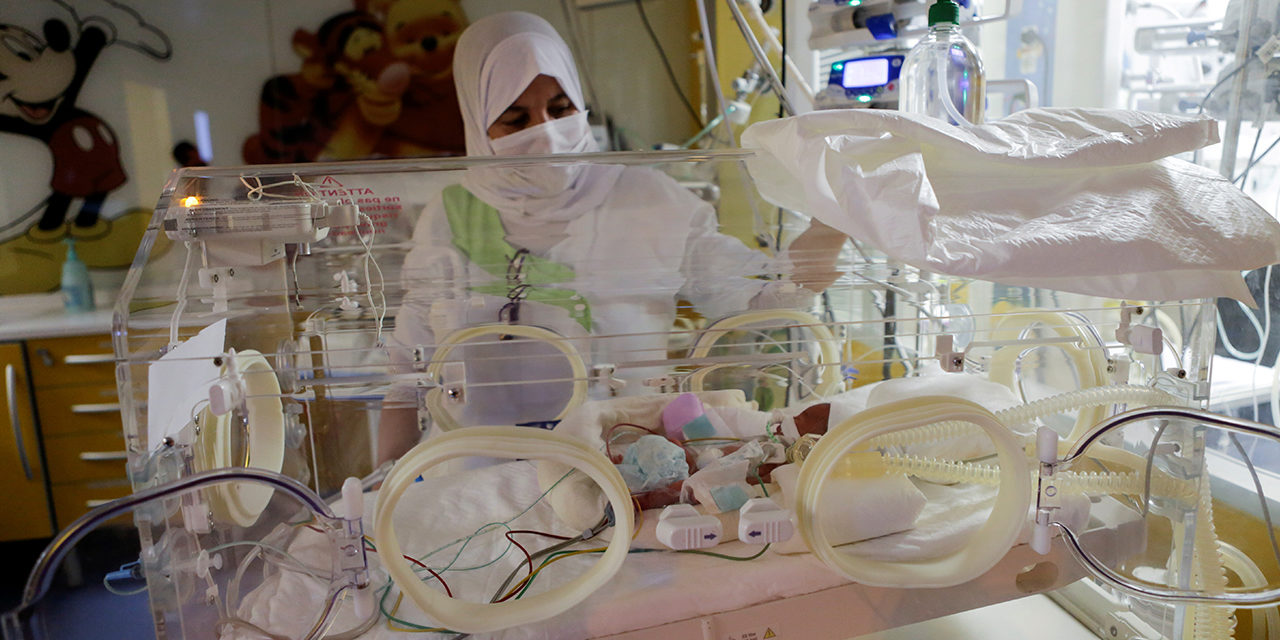A mother from Mali received quite the Mother’s Day present, as she delivered nine babies, two more than was expected after an earlier ultrasound. If all the children survive, it will be a first set of living nonuplets in recorded history.
After the birth, Mali’s health minister, Dr. Fanta Siby, reported, “The newborns (five girls and four boys) and the mother are all doing well.”
Originally from one of the most impoverished countries on earth, mother Halima Cissé had been consistently observed by the Mali government before they paid for her medical evacuation to Morocco for the birth.
In order to give the babies the best chance at survival, doctors waited until they had reached 30 weeks gestation and all were delivered via caesarean section. The babies’ range in weight from 1.1 to 2.2 pounds.
The children’s father, who remained in Mali with their other daughter, was thrilled with the news. “I’m very happy,” he said. “Everybody called me! Everybody called! The Malian authorities called expressing their joy. I thank them…Even the president called me.”
He also said, “God gave us these children. He is the one to decide what will happen to them. I’m not worried about that. When the Almighty does something, he knows why.”
There have been only two other recorded instances where a woman has given birth to nine children. Sadly, in both of those cases, none of the children survived more than a couple of days. If even one of these babies survives the next weeks it will be one for the record books, but if all do then it will be a first time in recorded history, and they would be entered in the Guinness Book of World Records.
When asked about the recent birth, Guinness said, “We are yet to verify this as a record as the wellbeing of both the mother and babies are of top priority.”
Nadya Suleman is the previous record holder, having given birth to eight children at one time in 2009.
After the birth, Suleman and the entire fertility industry came under criticism when it was discovered that she was a single mother who already had six children before becoming pregnant with her octuplets. All were conceived via IVF, and Suleman reportedly requested that all of her remaining six embryos be implanted at once, despite the risks, and she became pregnant with eight. In order to support her family, she eventually turned to pornography, trading off the “Octomom” name.
While Focus on the Family remains passionate about families and children, Suleman’s and now Cissé cases raise some concerning questions about regulations in the fertility industry and if things can sometimes go too far, putting women and children at risk.
Multiples in pregnancy occur naturally, but the likelihood increases when fertility treatments are involved. When a woman is having multiples oftentimes those babies cannot make it to the 40-week gestational mark due to the lack of space in the womb and stressing the physical resources of the mother. Therefore, these babies are at higher risks of premature birth and having lung and other long-term health issues as they’ve been unable to fully develop.
The risks become even higher if a woman is having four, five, six, seven, eight or even nine babies. However, thankfully doctors are much better at treating these complications and these babies are often surviving and thriving.
So how does this apply to fertility treatments and the birth of perhaps the world’s first surviving set of nonuplets? In order to ensure the best possible outcome, doctors often procure more eggs and develop more embryos than they actually need. This can result in cases like Suleman, where a doctor agrees to implant more than the recommended number of eggs knowing that there is a high degree of certainty that they will take and she could have six or more babies (in the event one of the embryos splits), or with a woman or couple having excess embryos that are simply left in storage indefinitely or given to researchers.
In some cases, women and families are pressured to have what’s called selective termination or aborting one or more of the children to make the number more manageable.
Due to the impoverished nature of Mali, it’s highly unlikely that Cissé had access to fertility treatments in the conception of her children, which would undoubtedly be a miracle worthy of celebration if true—but it’s also possible that a doctor in the country risked her health and the health of her children by implanting too many embryos at one time.
Having children is an immense blessing, but the fertility industry has a responsibility to the women and families that it serves to do so in a safe way. So as families gather for Mother’s Day in the U.S., pray for Cissé and her children as they recover and hopefully go from strength to strength, adding a new world record as well.
Photo from REUTERS






